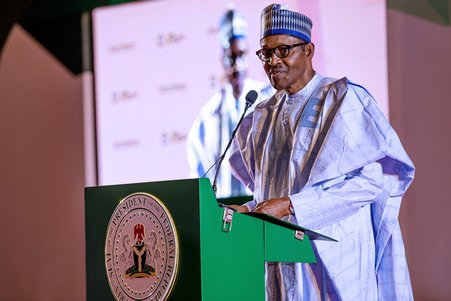National Security And National Interest: A Part Cannot Be Superior To A Whole
While making the opening statement at the 2018 Nigeria Bar Association annual conference in Abuja on Sunday, August 26, 2018, President Muhammadu Buhari was reported to have made the following statements:
“The Rule of Law must be subject to the supremacy of the Nation’s Security and National interest. Our apex Court has had course to adopt a position on this issue in this regard and it is now a matter of judicial recognition that; where national security and public interest are threatened or there is a likelihood of their being threatened, the individual rights of those allegedly responsible must take second place, in favour of the greater good of society.”
Advertisement
This, to me, is not correct. It is not the position of our laws and the Supreme Court has never said that national security is superior to the rule of law. I strongly believe that the Supreme Court will never say so. This is because it is the law that guarantees national Security. As I pointed out in my immediate reaction to the publication of the statement made by the President: “The process for ensuring National Security is guided by law. All structures and institutions for enforcing and safeguarding the country are creations of law, including the office of the commander – in – chief. It is therefore not correct that national security is superior to rule of law. Rule of law is sacrosanct and it is the basis upon which citizens surrender their rights to the state. There is ample difference between individual rights and rule of law for individual right is anchored on rule of law. President Muhammadu Buhari must have mistaken the Supreme Court’s decision in Asari’s case on right of private citizens being subject to public safety and security to mean that rule of law is subject to National Security. Once rule of law is subjected to perceived need for national security which is determined by one man or group of men without the requisite checks and balances as provided in our constitution and other extant legislations, dictatorship is born and democracy takes flight.”
When one looks at the statement credited to the president, it becomes certain that the president or whoever authored that document that the president read does not understand the concept of rule of law and what it portrays. It appears clearly that the author does not know that national security and public interest are all aspects of rule of law. The procedure for ensuring national security is an aspect of rule of law just like obedience to orders made by courts of competent jurisdiction.
In any case, the executive arm of government do not have the powers to determine what decisions of national interest or security. court to obey or not hiding under the guise of
If the essence of the president’s statement is to justify the illegal and unjust continued detention of Sambo Dazuki, El Zakzaky and others, the argument fails flat on its face. No one is allowed to justify disobedience to court orders by citing wrong Supreme Court decisions. It is only the court and the court alone that determines what is national security vis a vis the rights of citizens. Justice Weldone Holmes aptly captured this principle in his famous definition of law when he stated: “The prophecies of what the courts can do and nothing more pretentious is what I mean by law.”
Advertisement
It does not lie in the mouth of the executive to tell us which is greater between rule of law, national security and individual rights of citizens because the executive does not power to conduct trial, consider the facts on a balanced scale and give a verdict. Each case is usually and should be considered on its own merit. The executive cannot hide under a supposed National Security and public interest to disobey lawful orders of court just to turn around to back its unlawful conduct with a decision of the Supreme Court in another matter. The president’s statement placed logic on its head as it not only shows complete lack of understanding of the concept of rule of law but seeks to place a part above the whole.
Ezekiel, Esq is a lawyer based in Abuja
–
Disclaimer: The views and opinions expressed in this article are those of the author(s) and do not necessarily reflect the official policy or position of The Whistler NG



